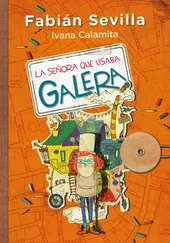It’s no problem, Dália. We can be friends, can’t we?
She sighs into the receiver.
I can pick him up.
She thinks for a few seconds.
Okay. Just until I find another solution.
T he police station is a low, square building surrounded by wire fences; there is an unoccupied gray and white police car out front. It is almost night, and an amber light is shining through the louver windows. He enters expecting to find a sordid, messy little room, but the inside is clean and organized. There are no papers in sight, and the cupboards and filing cabinets look empty and untouched, like display pieces in an office furniture shop. Posters of campaigns to fight crack and violence against women share space on the walls with road and geographical maps of the region. At one of the three desks, a policeman in a khaki uniform is half-slouched in his chair, staring at a computer screen and fiddling with the mouse. He turns to greet him. The policeman is a tall man, wiry and muscular, with powerful bones that seem to beg an even bigger body. His jaw and ears are enormous and make the other parts of his head look small in comparison. He sits in the chair in front of the policeman and explains why he is there, hesitating a little before each sentence.
I moved here not long ago. I’m living in a little apartment over in the corner of the village, next to Baú Rock, which I rented from Cecina and… To be honest, I’m not here about a problem of any sort. I’m actually curious about something that happened a long time ago. My granddad lived here in Garopaba in the late sixties. And he was killed here. I think he was buried in the town, but I’m not sure. His nickname was Gaudério.
Gaudério.
Yep.
And he was killed here.
Apparently so.
When exactly?
In ’sixty-nine.
In nineteen sixty-nine?
Yep.
The police officer stares at him expressionlessly.
What I’d like to know is if there is a police record of it somewhere. Some kind of report. Apparently the police chief came out from Laguna at the time.
From Laguna?
Yep.
Gaudério.
Yep.
What did you come here for?
What do you mean?
You said you moved here not long ago. What for?
The officer is leaning back in his chair, but his arms are so long they reach the table. His relaxed wrists are slightly contorted like the hands of someone with arthritis.
I didn’t come here for anything. I wanted to live on the beach. I’m a PE teacher. But what’s that got to do with it?
Back then there wasn’t a police station in Garopaba, says the officer. If there was any kind of inquiry, the files would be in Laguna. But I doubt it. That was a long time ago. I’m from here, born and bred, my parents and grandparents and great-grandparents are from here, and I’ve never heard of him. People remember the ones who die.
I’ve asked some of the older locals.
I know.
You know?
Yep. I know.
Well then. There are people who remember my granddad. But no one remembers his death.
If no one remembers, then it didn’t happen.
I just want to be sure.
The officer’s enormous twisted hands come to life. He straightens his fingers, then clasps them together. He lowers his head a little and stares at him.
You won’t find anything here from back then. Maybe in Laguna.
There is some shouting outside that rises in volume before bursting through the door. The officer leans back and looks over his shoulder, on guard. Two other officers come in, violently dragging a young man in handcuffs. Behind them comes a pale, blond man of about fifty, fat from the waist up and thin from the waist down, who is gesticulating nonstop and shouting things in a foreign language. The hulking, big-eared police officer excuses himself, gets up slowly, and goes to give the newly arrived problem his attention.
What’s going on?
One of the officers who has just arrived, a short man whose uniform sits loosely on his body, says they caught the young man breaking into the German’s house. The blond man, who must be the German, bellows in protest in a tongue that isn’t German or any other foreign language but rather a truncated form of Portuguese with an almost incomprehensible accent. He shouts that it is the third time the thief has broken into his house, holding up three fingers. This time he saw the intruder coming into his garden, so he hid in his own garage and took the young man by surprise with a blow to the head.
Günther waited in the garage and wham , he says, simulating the gesture of a baseball player.
The other police officer says they found the man tied to a beam in the garage by his feet, hanging upside down. The German continues narrating the story at the top of his lungs and gesticulating. The officers start to interrogate the young man, whose hair at the back of his head is drenched with blood. Realizing that the officers are no longer listening, Günther turns to him.
Three times! he cries, exasperated. I tell police three times ! I have thief’s address ! Everyone knows him!
Günther is wearing leather sandals, a pair of battered cargo jeans, and a blue Pepsi T-shirt. He has very blue eyes and a white beard cut close to his red face. He says that the man broke his window twice in the last few weeks to steal a blender and a pair of running shoes.
They steal small things to smoke crack! Blow to the head! Wham! You can’t be afraid of the delinquent!
Günther grabs his arm forcefully and starts telling him how he came to Rio de Janeiro to look for his daughter, who had been kidnapped by her Brazilian mother. He had been warned that Brazil was very dangerous and stayed locked in his hotel room for four days eating nothing but peanuts and drinking only soft drinks. He ran out of peanuts and was forced to go downstairs and find a tavern where he could get something to eat. He ordered some fries, and a delinquent tried to take them. Günther stabbed him in the hand with his fork, and everyone stood around watching. No one else bothered him. Since then he’s never been afraid.
The police officers have begun beating up the young man in a corner of the police station. Günther’s face twists in horror. He shouts at them to stop and, seeing that it isn’t enough, lunges at the officers, who are trampling the kid, who can’t be more than eighteen years old and is curled up on the floor saying he is sorry. The officers try to immobilize Günther and stop the suspect from getting away at the same time. Tables are dragged about, and the bottle is knocked off the water cooler. He watches the pandemonium until the German is brought under control. The young man is sitting on the ground protecting his head with his hands. The officer looks surprised when he realizes he is still there.
Can I help you with anything else?
No. Thank you for your time.
Good evening.
Ah. One more thing. A girl was killed in Paulo Lopes a few weeks ago. Strangled. Her face was mutilated. Do you know which case I mean?
Yep. They caught the guy.
Did they? Who was it?
A neighbor. I don’t remember his name. He’s locked up. Why?
I read about it in the paper and just remembered it. Just curious.
He confessed. An acquaintance of the family. He’d already been seen with the daughter.
Did he say why he killed her like that?
Apparently he was in love with her. She wasn’t interested.
Is he normal or a whacko?
The officer looks as if he is about to laugh and shrugs.
He thanks him and leaves with his bike and Beta.
He returns home on foot, pushing his bike through the streets skirting Capivaras Lagoon. The light from the lampposts gives an oily yellow hue to the carpet of water moss that covers almost the entire surface of the polluted lagoon. A cloud of mosquitoes hovers over a small rotting warehouse. Huge dogs start to emerge from the vegetation on an empty lot, and he hooks his finger under Beta’s collar as a precaution. Several members of the pack are purebreds, Rottweilers, German shepherds, or mixed breeds in which he recognizes the features of collies and Labradors. They are all filthy and lean, with tongues hanging out, fur bristling with sweat and cold, trotting through the night with no apparent destiny as if following a ghostly leader. They are a common sight in the town, large dogs abandoned by vacationers who live hundreds of miles away. They seem haunted, as if they can’t fully stifle the instinct to search for home.
Читать дальше












